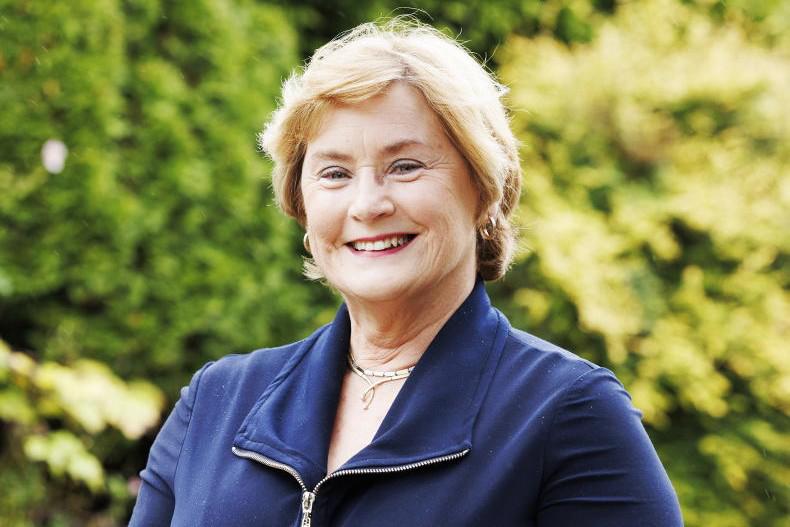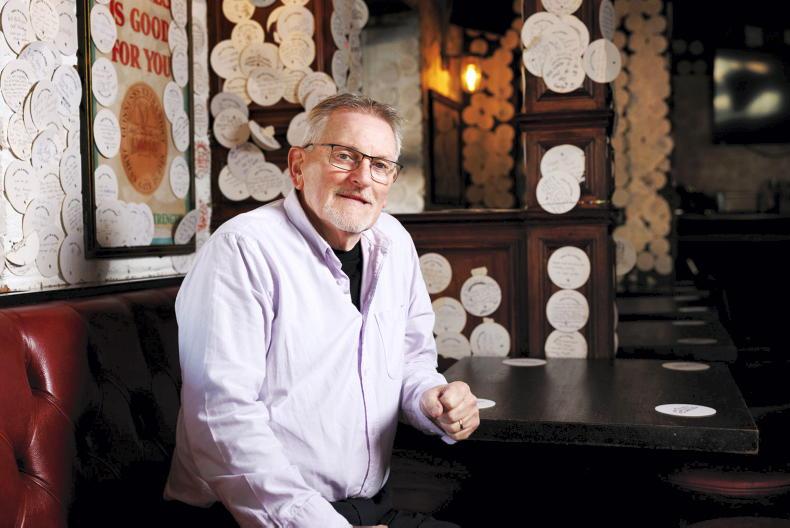Hitting 50 can be a significant milestone in a woman’s life, marking a time of transition, reflection and renewal. With the right approach you can enjoy this new chapter in life – and continue to look after your health so that you can get the best out of every day.
Dr Laura Cullen, Bantry GP and director of women’s health with the Irish College of General Practitioners (ICGP) advises women moving into this decade of their life to have annual check-ups.
“Have blood tests done each year and keep a close eye on your weight and blood pressure too, as risks start to rise then,” she says. “Breast cancer and cardiovascular disease tend to become the major risks, particularly if there is a family history of these illnesses.”
If there is a history of heart attack or stroke in the family, medication might come into play to manage your risks, she adds.
“You can do nothing about genetics but lots about lifestyle,” she says. “Your risks start to climb significantly after menopause because oestrogen is cardio (heart) and bone protective. Because oestrogen levels drop so much after menopause, those illness risks go up significantly,” she says.
Weight bearing exercise also become imperative, explains Dr Cullen.
“We need to be doing things like yoga, Pilates, and lifting weights as well as making sure we are getting adequate calcium in our diet.”
Cardiovascular (heart health) risk tends to be the one that’s forgotten about but it’s the biggest killer of women, she says.
“One in four Irish women die of heart attack or stroke and are six times more likely to die from these than from breast cancer.”
Osteoporosis can lead to significant consequences too if bone health is not looked after.
“A woman in her 70s might be living a great life, then something awful happens like a hip fracture and this changes everything. Make sure you are doing the groundwork in your 50s, talking to your doctor about your risk of osteoporosis and addressing it then. A GP can do a risk assessment and refer you for a DEXA scan.”
Many women choose to use Hormone Replacement Therapy (HRT) around the age of 50 too, says Dr Cullen, depending on how badly they are affected by peri-menopause and menopause.
“HRT is bone protective and also has heart health benefits,” she explains.
“Women in their 50s and beyond also shouldn’t tolerate things like vaginal dryness. Oestrogen in the form of vaginal creams or pessaries is available for localised treatment and carries no risk. Women don’t have to put up with things like itch, urinary tract infections or painful intercourse.”
Lack of sleep
Dr Mary Ryan points out that some 15-20% of women sail through menopause while 20% really suffer with flushing, sweating and lack of sleep.
“Others get dreadful anxiety, but thankfully, with all the talk about menopause, women are coming forward for treatment. It’s best to take a holistic approach, watching your diet and pacing yourself because the hormone control centre – the pituitary – has to get support and recharge at this time when hormones are shifting,” she says.
Dr Ryan, like Dr Cullen, emphasises the importance of a DEXA scan every two years from the age of 50 onwards.
“It you have osteoporosis – where you are at risk of breakage particularly in the back, the pelvis and the wrist – you are going to need treatment but there are options available,” she says.
“We see too many women with fractures, which not only disables them, but which are totally unnecessary. There is increased mortality for a hip fracture because you might get a clot, too. You don’t want any of that. The message is to get out there because all this is preventable. Good bone health is behind all of it.”
She mentions heart health for this age group, too.
“When you get defective oestrogen, your arteries become less elastic and harder and that’s why your blood pressure can go up so you should have it monitored along with cholesterol levels.
As you move into your 60s, you will hopefully be retiring and enjoying life to the full, but you need to be healthy in order to age well. That starts early on
“It can shoot up at this time if there is a genetic tendency to not break down ldl (bad) cholesterol too. This has nothing to do with diet and a statin may be needed to control it. You don’t want plaque in any of the arteries particularly those going to the brain because this reduces the flow of oxygen and causes brain atrophy over time, which can lead to dementia in later life. Keeping your weight right and giving up smoking is also important.”
Dr Angie Brown, medical director at the Irish Heart Foundation speaks of heart attack risk after 50 particularly if, during pregnancies, you experienced pre-eclampsia or developed gestational diabetes.
“These increase a women’s long-term risk of developing cardiovascular disease later on,” she says, “so you need your blood pressure, lipids (cholesterol) and blood sugar checked regularly.
“Polycystic ovaries, inflammatory and autoimmune disorders may also increase the risk of heart disease.
“Psychosocial risk factors (stress, fatigue, bullying, shift work), socioeconomic deprivation (poverty/disadvantage), poor health literacy (being unable to access good health information and care systems) and environmental risk factors (poor air and water quality) also have a role in increasing risk to women.”
Living your best life
Aging – says hormone expert Dr Mary Ryan and author of It’s Probably Your Hormones – is about living your best life.
“It’s about loving yourself enough to eat healthily, exercise, not smoke and drink in moderation. As you move into your 60s, you will hopefully be retiring and enjoying life to the full, but you need to be healthy in order to age well. That starts early on.
“Continue to get your smears done and put yourself in charge of your health because what you do now in your 50s is going to help you in your 60s, 70s, 80s and 90s. Many women are now living well into their 90s and there is no reason why they shouldn’t.”
Life expectancy in Ireland continues to increase, standing currently at 84.4 years for women and 80.8 years for men, according to the HSE Annual Report for 2022.
Dr Ryan says she wants to see women feeling more confident and empowered around the whole topic of aging.
“I would love it if women didn’t feel that they need to fight to stay young all the time (having cosmetic treatments), that they would embrace aging a bit like the actress Helen Mirren has done.
“In other words, that they grow old gracefully as opposed to this constant fight to look 20 years younger.”
Dr Ryan highlights the dangers of alcohol overuse in older women also.
“I’m seeing it in patients because it is one of the contributory factors for people putting on weight and getting fatty liver and diabetes so it’s something to be aware of,” she says. “Moderation is key.”
Dr Cullen says that this can be a time when women experience joint pain and need better nutrition.
“If you have pain, talk to your GP, but don’t forget about good nutrition also. There can be a tendency for older women to choose tea and toast too often. It is really important to have vegetables and protein every day.
“Getting out and staying socially connected is of paramount importance also. Stay involved in your community. There is loads of evidence of cognitive decline if you are isolated. Get your hearing checked too – as not being able to hear properly can increase isolation.”
Pelvic floor exercises are be very beneficial as you age, to strengthen your core.
“Women’s health physiotherapists can advise on these. Pelvic weakness (leading to urinary incontinence) becomes a problem after the age of 50 and things like Pilates can be very beneficial.”
Dr Cullen is also eager to remind women aged 59-69 that they are entitled, like men, to a free BowelScreen home test every two years.
“You need to register for tests for bowel cancer. When you are registered you can get the free home screening test.”
See www2.hse.ie/conditions/bowel-
screening/register
Read more
Developing good health habits to live well later
Health special: big gulf between hospital parking income and costs
Hitting 50 can be a significant milestone in a woman’s life, marking a time of transition, reflection and renewal. With the right approach you can enjoy this new chapter in life – and continue to look after your health so that you can get the best out of every day.
Dr Laura Cullen, Bantry GP and director of women’s health with the Irish College of General Practitioners (ICGP) advises women moving into this decade of their life to have annual check-ups.
“Have blood tests done each year and keep a close eye on your weight and blood pressure too, as risks start to rise then,” she says. “Breast cancer and cardiovascular disease tend to become the major risks, particularly if there is a family history of these illnesses.”
If there is a history of heart attack or stroke in the family, medication might come into play to manage your risks, she adds.
“You can do nothing about genetics but lots about lifestyle,” she says. “Your risks start to climb significantly after menopause because oestrogen is cardio (heart) and bone protective. Because oestrogen levels drop so much after menopause, those illness risks go up significantly,” she says.
Weight bearing exercise also become imperative, explains Dr Cullen.
“We need to be doing things like yoga, Pilates, and lifting weights as well as making sure we are getting adequate calcium in our diet.”
Cardiovascular (heart health) risk tends to be the one that’s forgotten about but it’s the biggest killer of women, she says.
“One in four Irish women die of heart attack or stroke and are six times more likely to die from these than from breast cancer.”
Osteoporosis can lead to significant consequences too if bone health is not looked after.
“A woman in her 70s might be living a great life, then something awful happens like a hip fracture and this changes everything. Make sure you are doing the groundwork in your 50s, talking to your doctor about your risk of osteoporosis and addressing it then. A GP can do a risk assessment and refer you for a DEXA scan.”
Many women choose to use Hormone Replacement Therapy (HRT) around the age of 50 too, says Dr Cullen, depending on how badly they are affected by peri-menopause and menopause.
“HRT is bone protective and also has heart health benefits,” she explains.
“Women in their 50s and beyond also shouldn’t tolerate things like vaginal dryness. Oestrogen in the form of vaginal creams or pessaries is available for localised treatment and carries no risk. Women don’t have to put up with things like itch, urinary tract infections or painful intercourse.”
Lack of sleep
Dr Mary Ryan points out that some 15-20% of women sail through menopause while 20% really suffer with flushing, sweating and lack of sleep.
“Others get dreadful anxiety, but thankfully, with all the talk about menopause, women are coming forward for treatment. It’s best to take a holistic approach, watching your diet and pacing yourself because the hormone control centre – the pituitary – has to get support and recharge at this time when hormones are shifting,” she says.
Dr Ryan, like Dr Cullen, emphasises the importance of a DEXA scan every two years from the age of 50 onwards.
“It you have osteoporosis – where you are at risk of breakage particularly in the back, the pelvis and the wrist – you are going to need treatment but there are options available,” she says.
“We see too many women with fractures, which not only disables them, but which are totally unnecessary. There is increased mortality for a hip fracture because you might get a clot, too. You don’t want any of that. The message is to get out there because all this is preventable. Good bone health is behind all of it.”
She mentions heart health for this age group, too.
“When you get defective oestrogen, your arteries become less elastic and harder and that’s why your blood pressure can go up so you should have it monitored along with cholesterol levels.
As you move into your 60s, you will hopefully be retiring and enjoying life to the full, but you need to be healthy in order to age well. That starts early on
“It can shoot up at this time if there is a genetic tendency to not break down ldl (bad) cholesterol too. This has nothing to do with diet and a statin may be needed to control it. You don’t want plaque in any of the arteries particularly those going to the brain because this reduces the flow of oxygen and causes brain atrophy over time, which can lead to dementia in later life. Keeping your weight right and giving up smoking is also important.”
Dr Angie Brown, medical director at the Irish Heart Foundation speaks of heart attack risk after 50 particularly if, during pregnancies, you experienced pre-eclampsia or developed gestational diabetes.
“These increase a women’s long-term risk of developing cardiovascular disease later on,” she says, “so you need your blood pressure, lipids (cholesterol) and blood sugar checked regularly.
“Polycystic ovaries, inflammatory and autoimmune disorders may also increase the risk of heart disease.
“Psychosocial risk factors (stress, fatigue, bullying, shift work), socioeconomic deprivation (poverty/disadvantage), poor health literacy (being unable to access good health information and care systems) and environmental risk factors (poor air and water quality) also have a role in increasing risk to women.”
Living your best life
Aging – says hormone expert Dr Mary Ryan and author of It’s Probably Your Hormones – is about living your best life.
“It’s about loving yourself enough to eat healthily, exercise, not smoke and drink in moderation. As you move into your 60s, you will hopefully be retiring and enjoying life to the full, but you need to be healthy in order to age well. That starts early on.
“Continue to get your smears done and put yourself in charge of your health because what you do now in your 50s is going to help you in your 60s, 70s, 80s and 90s. Many women are now living well into their 90s and there is no reason why they shouldn’t.”
Life expectancy in Ireland continues to increase, standing currently at 84.4 years for women and 80.8 years for men, according to the HSE Annual Report for 2022.
Dr Ryan says she wants to see women feeling more confident and empowered around the whole topic of aging.
“I would love it if women didn’t feel that they need to fight to stay young all the time (having cosmetic treatments), that they would embrace aging a bit like the actress Helen Mirren has done.
“In other words, that they grow old gracefully as opposed to this constant fight to look 20 years younger.”
Dr Ryan highlights the dangers of alcohol overuse in older women also.
“I’m seeing it in patients because it is one of the contributory factors for people putting on weight and getting fatty liver and diabetes so it’s something to be aware of,” she says. “Moderation is key.”
Dr Cullen says that this can be a time when women experience joint pain and need better nutrition.
“If you have pain, talk to your GP, but don’t forget about good nutrition also. There can be a tendency for older women to choose tea and toast too often. It is really important to have vegetables and protein every day.
“Getting out and staying socially connected is of paramount importance also. Stay involved in your community. There is loads of evidence of cognitive decline if you are isolated. Get your hearing checked too – as not being able to hear properly can increase isolation.”
Pelvic floor exercises are be very beneficial as you age, to strengthen your core.
“Women’s health physiotherapists can advise on these. Pelvic weakness (leading to urinary incontinence) becomes a problem after the age of 50 and things like Pilates can be very beneficial.”
Dr Cullen is also eager to remind women aged 59-69 that they are entitled, like men, to a free BowelScreen home test every two years.
“You need to register for tests for bowel cancer. When you are registered you can get the free home screening test.”
See www2.hse.ie/conditions/bowel-
screening/register
Read more
Developing good health habits to live well later
Health special: big gulf between hospital parking income and costs









SHARING OPTIONS